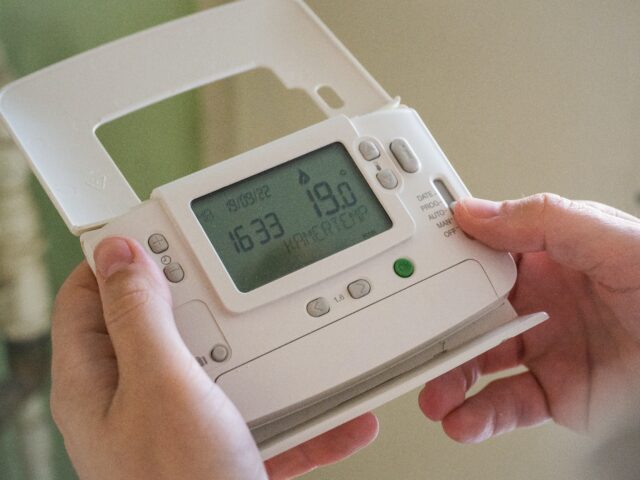Introduction to Comfort Masters — Expertise in Heating
Welcome to Comfort Masters, your go-to experts for all your heating needs. With years of experience and a passion for keeping homes cozy, we are here to share our best tips and tricks to help you stay warm throughout the year. Our team of professionals is dedicated to providing top-notch service and ensuring your comfort no matter the season.
The Importance of Regular Maintenance for Heating Systems
Regular maintenance is crucial when it comes to your heating system’s performance and longevity. Neglecting maintenance can lead to inefficient operation, higher energy bills, and costly repairs. Schedule annual maintenance with a qualified technician to keep your heating system running smoothly. They will inspect and clean your system, check for any potential issues, and make the necessary adjustments. Additionally, don’t forget to regularly replace your air filters to ensure proper airflow and prevent dust and debris buildup.
Another important aspect of maintenance is ensuring that your heating system’s ductwork is in good condition. Leaky ducts can significantly reduce the efficiency of your system and lead to uneven heating in your home. If you suspect any leaks or damage, contact a professional to seal or repair them promptly.
Tips for Improving Heating Efficiency in the Winter Months
As the temperature drops in the winter months, it’s essential to optimize your heating system’s efficiency to keep your home warm and your energy bills reasonable. Here are some tips to help you improve heating efficiency:
- Seal air leaks: Check for drafts around windows, doors, and electrical outlets. Use weatherstripping or caulking to seal these air leaks and prevent heat loss.
-
Comfort Masters Thermostat Insulate your home: Proper insulation plays a significant role in maintaining a comfortable temperature indoors. Make sure your attic, walls, and floors are well-insulated to minimize heat transfer.
- Utilize window coverings: Thick curtains or blinds can act as additional insulation, keeping the cold air out and retaining heat indoors. Open them during the day to let sunlight in and close them at night to trap the warmth.
- Optimize thermostat settings: Set your thermostat to a comfortable temperature while you’re at home and lower it when you’re away or asleep. Invest in a programmable thermostat to automate temperature adjustments and save energy.
- Use ceiling fans: Ceiling fans aren’t just for summertime. By running them in reverse (clockwise) at a low speed, they can help circulate warm air that rises to the ceiling, improving overall heating efficiency.
Common Heating Issues and How to Troubleshoot Them
Even with regular maintenance, heating systems can encounter issues. Here are some common problems and troubleshooting tips to help you identify and resolve them:
- No heat: If your heating system isn’t producing any heat, check the thermostat settings to ensure it’s set to “heat” and the desired temperature is higher than the current room temperature. If the thermostat is functioning correctly, inspect the circuit breaker or fuse box to ensure there’s power to the system. If these checks don’t solve the problem, contact a professional technician.
- Inconsistent heating: If you notice that some rooms in your home are colder than others, it could be due to an imbalance in the airflow. Make sure all vents are open and unblocked. Clean or replace air filters as dirty filters can restrict airflow. If the issue persists, consider having a professional inspect your ductwork for leaks or blockages.
- Strange noises: Unusual noises coming from your heating system could indicate a problem. Rattling or banging sounds may suggest loose or broken components, while squealing noises may indicate a worn-out belt. It’s best to have a professional technician diagnose and repair unusual noises to prevent further damage.
Remember, if you’re unsure about any troubleshooting steps or if the issue persists, it’s always best to consult a professional HVAC technician for accurate diagnosis and repair.
Choosing the Right Heating System for Your Home
Choosing the right heating system for your home ensures optimal comfort and energy efficiency. Here are some factors to consider when selecting a heating system:
- Fuel type: Determine which fuel source is readily available in your area and consider the availability and cost of fuel options such as natural gas, oil, or electricity.
- Energy efficiency: Look for heating systems with high energy efficiency ratings, such as the Annual Fuel Utilization Efficiency (AFUE) for furnaces and the Heating Seasonal Performance Factor (HSPF) for heat pumps.
- System size: Ensure that the heating system you choose is appropriately sized for your home. An undersized system will struggle to heat your home efficiently, while an oversized system may cycle on and off frequently, leading to unnecessary wear and tear.
- Zoning capabilities: If you want to have different temperature zones in your home, consider a heating system that offers zoning capabilities. This allows you to customize the temperature in each zone for enhanced comfort and energy savings.
Consult with a professional HVAC contractor who can evaluate your home’s needs and recommend the most suitable heating system.
How to Properly Program and Use a Thermostat for Optimal Comfort
A programmable thermostat is a valuable tool for maintaining optimal comfort while maximizing energy savings. Follow these steps to properly program and use your thermostat:
- Set a schedule: Determine when you’re typically at home, away, or asleep, and create a heating schedule accordingly. Aim for slightly lower temperatures when you’re away or asleep to save on heating costs.
- Utilize setback temperatures: Take advantage of the setback temperature feature on your programmable thermostat. It allows you to lower the temperature automatically when you’re away and raise it before you return, ensuring a comfortably warm home when needed.
- Avoid drastic temperature changes: Instead of setting a high temperature to warm up your home quickly, it’s more efficient to keep a consistent, moderate temperature. Drastic temperature changes can strain your heating system and increase energy consumption.
- Utilize thermostat features: Familiarize yourself with the features of your thermostat, such as vacation mode or manual overrides. These can come in handy when you have specific temperature preferences or when you’re away for an extended period.
Properly programming and using your thermostat can significantly improve energy efficiency and help you save on heating costs while keeping your home cozy.
Expert Advice on Maintaining Indoor Air Quality During the Heating Season
During the heating season, maintaining good indoor air quality is crucial for your health and comfort. Here are some expert tips to help you improve and maintain indoor air quality:
- Regularly clean and dust: Dust and other airborne particles can accumulate more quickly during the heating season. Regularly dust and vacuum your home to minimize the presence of allergens and pollutants.
- Change air filters: Clean or replace air filters regularly to ensure proper airflow and reduce the buildup of dust, pollen, and other contaminants.
- Control humidity levels: Dry indoor air can lead to respiratory discomfort. Use a humidifier to add moisture if the air is too dry or a dehumidifier if it’s too humid. Aim for a relative humidity level between 30% and 50%.
- Ventilate your home: Proper ventilation helps remove stale air and pollutants from your home. Open windows briefly daily to allow fresh air in and use exhaust fans in kitchens and bathrooms to remove moisture and odors.
- Consider air purifiers: Air purifiers with HEPA filters can help remove airborne particles, including dust, pet dander, and allergens, providing cleaner indoor air.
By following these expert tips, you can ensure better indoor air quality and create a healthier living environment for you and your family.
Energy-saving Tips for Reducing Heating Costs
Reducing heating costs not only helps your wallet but also contributes to a greener and more sustainable planet. Here are some energy-saving tips to lower your heating bills:
- Maximize natural heat: Take advantage of natural heat sources by opening curtains during the day to let sunlight in. Keep them closed at night to prevent heat loss.
- Layer up: Instead of cranking up the heat, layer your clothing and use blankets to keep warm. This allows you to lower the thermostat and save on heating costs.
- Seal windows and doors: Apply weatherstripping or caulking around windows and doors to prevent drafts and heat loss. Consider using draft stoppers or door sweeps to further minimize air leakage.
- Upgrade insulation: Insulating your home properly is one of the most effective ways to reduce heat loss. Add insulation to your attic, walls, and floors to keep the warmth inside.
- Use space heaters strategically: If you spend most of your time in one room, consider using a space heater to warm up that area instead of heating the entire house.
Remember, even simple changes in your daily habits can add up to significant energy savings over time.
The Benefits of Investing in a Smart Heating System
Investing in a smart heating system can revolutionize the way you control and monitor your home’s temperature. Here are some benefits of upgrading to a smart heating system:
- Remote access: Smart heating systems allow you to control your home’s temperature remotely through a smartphone app. This means you can adjust the temperature even when you’re not at home, ensuring a comfortable environment upon your return.
- Energy savings: Smart heating systems utilize advanced algorithms and sensors to optimize energy usage. They learn your heating preferences and adjust accordingly, helping you save on energy costs without sacrificing comfort.
- Integration with smart home devices: Smart heating systems can integrate with other smart home devices, such as voice assistants or home automation systems. This allows for seamless control and automation of your home’s heating.
- Enhanced comfort: With precise temperature control and zoning capabilities, smart heating systems provide enhanced comfort and customized heating options for different areas of your home.
While the upfront cost of a smart heating system may be higher, the long-term benefits in terms of convenience, energy savings, and comfort make it a worthwhile investment.
Final Thoughts from Comfort Masters
As the colder months approach, it’s crucial to prepare your heating system and follow these tips and tricks to stay cozy all season long. Regular maintenance, optimizing heating efficiency, troubleshooting common issues, and choosing the right heating system are all important steps in ensuring your comfort and reducing energy costs. Proper thermostat usage, indoor air quality maintenance, and energy-saving practices can enhance your home’s coziness and efficiency.
At Comfort Masters, we are dedicated to providing you with the expertise and service you need to keep your home warm and comfortable throughout the year. If you have any questions or require professional assistance, don’t hesitate to reach out to our team of heating experts. Stay cozy, and enjoy the warmth of your home! Contact us at Comfort Masters to find out how we can help with your heating systems.






